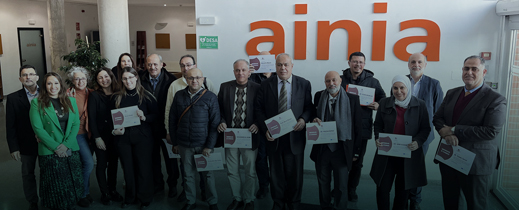Food Hygiene and Technology
The unit conducts analytical investigations on food for human and animal consumption, performing tests to identify and quantify pathogenic microorganisms and hygiene indicators in food production processes. It also carries out analyses for the detection of Genetically Modified Organisms (GMOs). The unit handles the genotypic characterization of foodborne pathogens to support epidemiological investigations and trace the sources of foodborne infections. It provides scientific consultancy and training for official laboratories and competent authorities, while collaborating in its areas of scientific expertise.
Analytical Activities
The unit performs analyses using cultural and molecular methods to detect and quantify foodborne pathogens in samples of food for humans and animals, as well as samples from food processing areas (environmental swabs), primary production sites, surface water and wastewater. Further activities involve characterizing isolated bacterial strains, including whole-genome sequencing to support epidemiological investigations and trace the sources of foodborne infections.
The laboratory primarily examines samples collected during official control activities, self-monitoring procedures, research projects, and consultancy and technical support for Competent Authorities.
It also carries out antimicrobial resistance (AMR) testing using qualitative and quantitative methods and investigates, counts, and characterizes bacteriophages. The unit collects, manages, and stores strains of L. monocytogenes and other Listeria species, along with AMR bacteria strains isolated from food production environments, animals, food products, and human clinical samples from hospitals and nursing homes, provided by both national and international clients.
Technical Assistance
The unit supports the Competent Authority with sampling activities conducted as part of regional and national control plans, including the implementation of the National Coordinated Prevention Plan.
Research
The unit focuses on the development, optimization, and validation of methods to evaluate bacterial and viral contamination associated with specific food categories and food production environments. It also investigates risk factors and contamination mechanisms of L. monocytogenes related to particular food categories. The unit conducts challenge tests in accordance with international guidelines to validate production processes or determine product shelf life.
In recent years, the unit has implemented genomic surveillance across Italy to study circulating populations of L. monocytogenes strains deposited in the national database.
Collaboration, Consultancy, and Training
The unit collaborates with EU laboratories, non-EU countries, and the Italian Ministry of Health to perform requested tests and organize training programs for technical personnel.
The unit also provides consultancy services to the European Commission, participating in working groups on microbiological criteria for Listeria monocytogenes and Campylobacter spp. It supports food business operators to ensure compliance with microbiological safety standards and assists Competent Authorities in investigating outbreaks of foodborne, zoonotic, or animal-related diseases.
The unit delivers training courses—including e-learning modules—on topics such as food safety, outbreak investigations, and programs for personnel involved in official control activities.
- + - Our Research
-
- + - Head
-
- + - Selected papers
-
Genomic Characterization of Listeria monocytogenes and Other Listeria Species Isolated from Sea Turtles
Di Renzo, L., De Angelis, M. E., Torresi, M., Mariani, G., Pizzurro, F., Mincarelli, L. F., Esposito, E., Oliviero, M., Iaccarino, D., Di Nocera, F., Paduano, G., Lucifora, G., Cammà, C., Ferri, N., & Pomilio, F. (2024). Microorganisms, 12(4), 817.
Integrative analysis of transcriptomic and immunoproteomic data reveals stress response mechanisms in Listeria monocytogenes
D'Onofrio, F., Butler, F., Krasteva, I., Schirone, M., Iannetti, L., Torresi, M., Di Pancrazio, C., Perletta, F., Maggetti, M., Marcacci, M., Ancora, M., Di Domenico, M., Di Lollo, V., Cammà, C., Tittarelli, M., Sacchini, F., Pomilio, F., D'Alterio, N., & Luciani, M. (2024). Heliyon, 10(21), e39832.
Identification by High-Throughput Real-Time PCR of 30 Major Circulating Listeria monocytogenes Clonal Complexes in Europe
Félix, B., Capitaine, K., Te, S., Felten, A., Gillot, G., Feurer, C., van den Bosch, T., Torresi, M., Sréterné Lancz, Z., Delannoy, S., Brauge, T., Midelet, G., Leblanc, J. C., & Roussel, S. (2023). Microbiology spectrum, 11(3), e0395422.
Listeria monocytogenes in ready-to-eat (RTE) delicatessen foods: Prevalence, genomic characterization of isolates and growth potential
Tirloni, E., Centorotola, G., Pomilio, F., Torresi, M., Bernardi, C., & Stella, S. (2024). International journal of food microbiology, 410, 110515.





